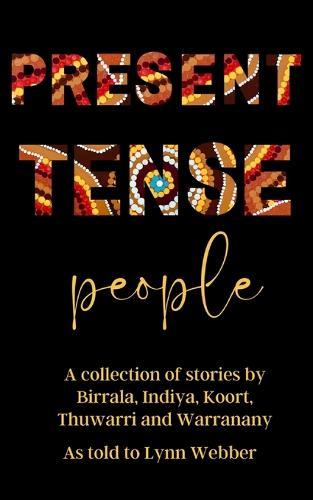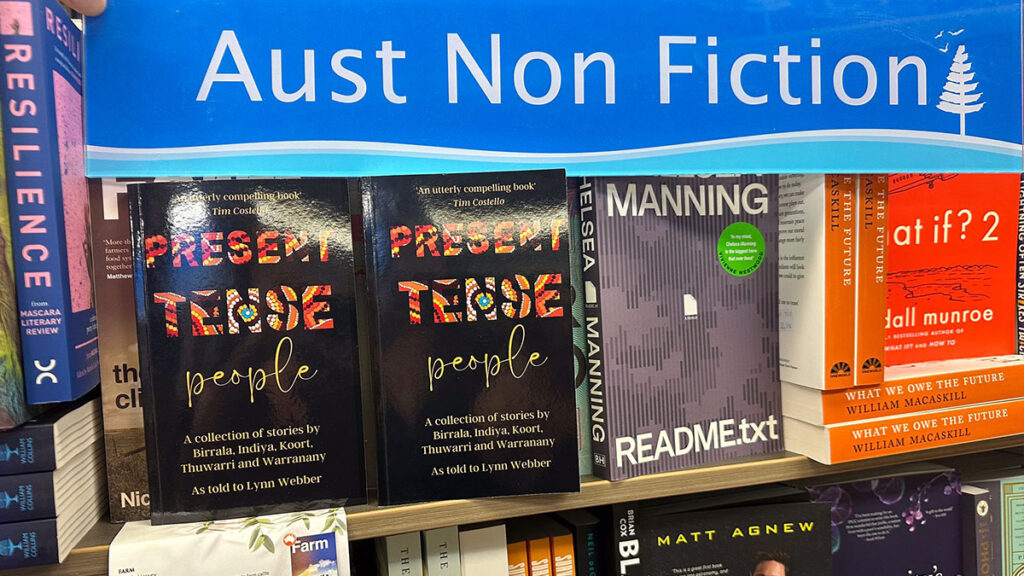

Present Tense People is a book of extraordinary stories about young First Australians. The book’s name is brilliantly apt when you think of present tense being a grammatical tense which has a principal function of locating a situation or event in the present time; the present tense is used for actions that are happening now.
The actions that are happening now and written about through the voice of five brave young Australians is devastatingly pertinent. Even though we hear on the news and read in the media about the shocking injustices and human rights violations enacted on our First Australians and are moved by them, we also then just move on with our own lives, which are so different in almost every way to those of the First Australians back in Cook’s day and still today.
There are five stories in Present Tense People, all told in autobiographical form and each set in a different area of Australia. Each in its own quiet way helps us to understand generationally what happened and keeps happening as each storyteller does their best to create a new and purposeful life while honouring their origins yet carrying the scars of the past in their DNA.
One of the things I found powerfully illuminating was the interweaving of extracts from Commonwealth Department edicts and legislation as it helped me better appreciate what happened in our relatively recent past. For example, the Chief Protector of Aborigines, A.O Neville, in Western Australia, created government policy that saw terms such as blood quantum and ‘castes’ (full blood, half, quarter, octoroon) become normalised in their use to define Aboriginal people. Neville successfully created fear concerning ‘half-caste’ children and this was reflected in the reporting of mixed heritage people as: “A pathetic, sinister third race which is neither white nor black.” Leaves you speechless, doesn’t it?
Every single story is gut wrenching and uplifting in equal measure. Every one of these young First Australians is doing everything, and more, that you’d hope from hard working, family-oriented young people just wanting to live independently and happily in the country of their birth. I would be so proud to call any of these young people my family. Their resilience, values, courage, kindness and work ethic are the stuff all true-blue Aussies celebrate.
Yet for these First Australians the obstacles are clear, present and real. Here’s an extract from the book that brings this point home. “Powerlessness before the law wrapped a familiar dark cloak around my shoulders. I had suddenly become the victim, even though I was not even the perpetrator. How when I’ve almost graduated, am I still being so unjustly treated? I presented an emotional plea, justifying my absence, my call and my medical certificate but it all fell on deaf ears. Without a sound, moving bodies circled me like vultures circling their prey. The feel of cold metal clicking against my wrists signalled they had their catch, triggering a sad remembering buried deep inside my ancestral DNA.”
Lynne Webber deserves the highest praise for her work in compiling this unique book. This is truth-telling at its best. The stories speak from the heart about Australia today while calling up the transcendence of the oldest continuing culture on earth.
It’s a book about identity, ancestors, learning, language, family and culture and interwoven is the beauty our First Australians find in nature, seasons and the abiding values that make us human. Every Australian should read this book. You will be a better human for the experience.